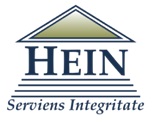Keywords
European competition law, cooperation, negotiations, dialogue, conditional merger clearances, commitments decisions, leniency, settlement, US companies, East Asian companies, Japanese companies, South Korean companies
Abstract
This paper considers the increasing use of “negotiated” instruments of European competition law (ECL) enforcement as illustrated by the European Commission’s (EC) enforcement practice directed at firms of American and East Asian origin. The paper first defines the notion of “negotiated” instruments of ECL enforcement as a non-confrontational enforcement method that centres on the existence of a public-private dialogue and mutual will to solve the contested issue, which in turn facilitate mutual benefits in enforcement outcomes (e.g. faster market improvements v. no fines). Three key “negotiated” instruments of ECL enforcement are presented next: conditional merger clearances, commitments decisions, as well as leniency and the settlement procedure. The EC’s decision to introduce negotiated enforcement instruments into its toolkit has been largely embraced by the market. Their ever growing practical application suggests that public-private dialogue is becoming a rule, rather than an exemption, in public enforcement of ECL. This thesis is illustrated by a selection of ECL cases involving US (e.g. Microsoft) and East Asian (e.g. Samsung, Sony) companies which chose to cooperate with the EC in order to generate tangible benefits for themselves, which are largely precluded in a more adversarial procedure
Recommended Citation
Sage, E. (2014). Increasing use of “negotiated” instruments of European competition law enforcement towards foreign companies. Yearbook of Antitrust and Regulatory Studies, 7(10), 235-262. Retrieved from https://press.wz.uw.edu.pl/yars/vol7/iss10/10
First Page
235
Last Page
262
Page Count
27
Publisher
University of Warsaw







